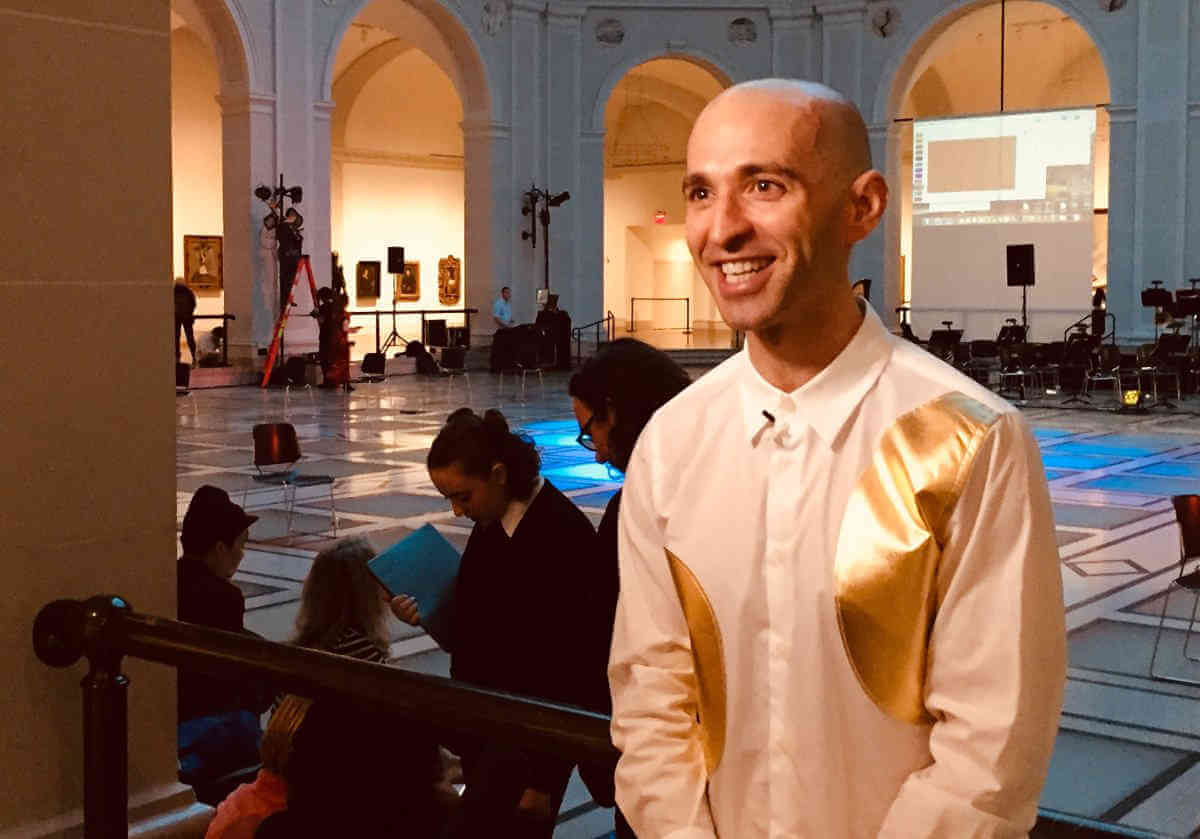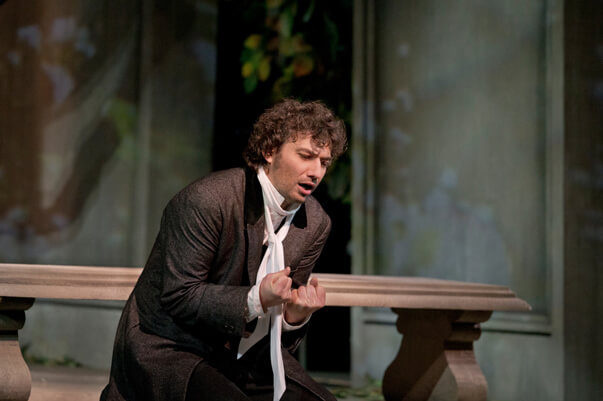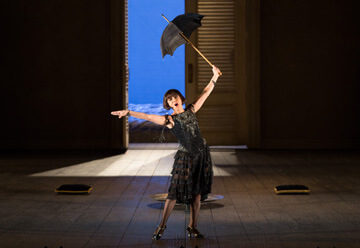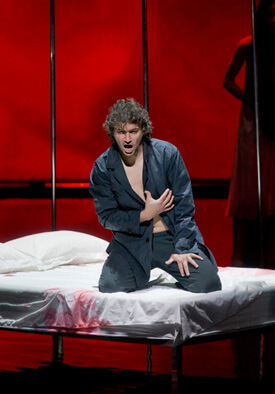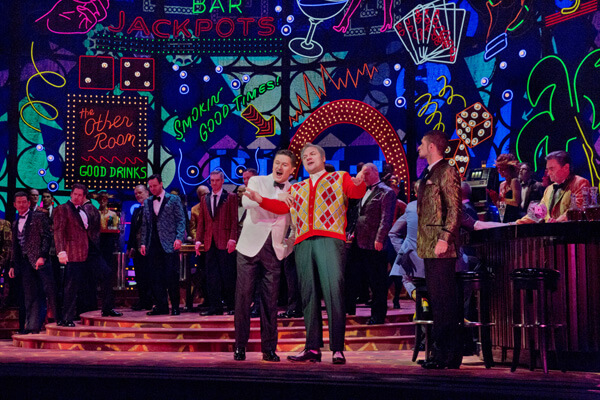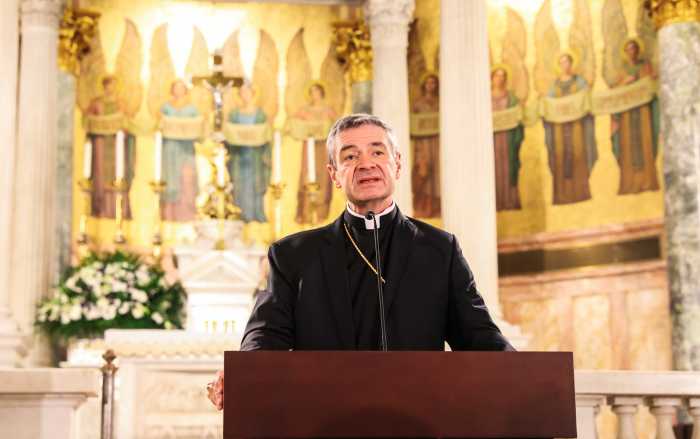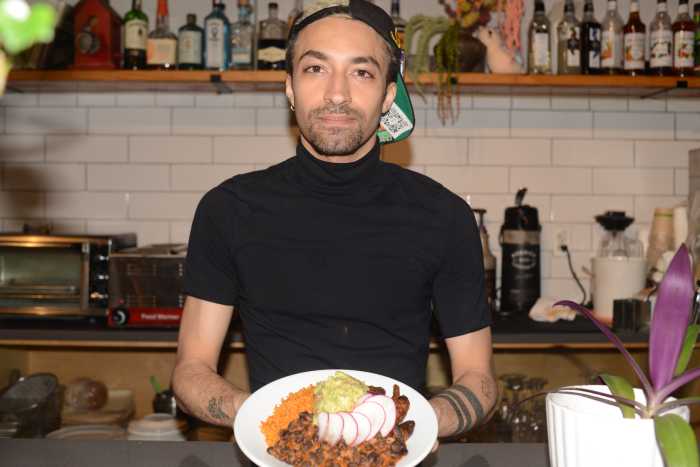There’s an amazing four-minute video where the countertenor Anthony Roth Costanzo talks to sixth graders at the TAPCo Middle School in the Bronx about how feelings are communicated through music (here or below). It’s a fun and energetic conversation, and then Costanzo opens his mouth to sing the aria “Pena Tiranna” from Handel’s “magic” opera “Amadigi di Gaula.” A room full of 11-year-old jaws drop.
Countertenors like Costanzo, 37, sing in the register usually associated with women’s voices. It’s impossible in our still tightly gendered world not to have any deviations from the most traditional presentations of male and female behavior shake things up. Costanzo, who has been performing professionally since he was 11 himself, has built an international career as a very in-demand countertenor singing operas from the Baroque repertoire originally composed for castrati — male singers who were castrated before puberty.
About reactions to his vocal style and range, Costanzo has said, “A child’s initial response to it is to laugh at it and I say bring it on, laugh at it. Look at me as effeminate or gay or whatever you want to do because, in those 30 seconds that you’re that engaged with me, that you’re listening, that you’re laughing, I can do something beautiful enough to bring you along, and then you stick around.”
Costanzo, who identifies as gay, has taken pains to address expectations about male voices throughout his education and career. In a short video from 2017 for the website Living the Classical Life (here or below), Costanzo said, “There’s a built-in novelty factor that goes with being a countertenor. Is it effeminate to sing as a countertenor? Like anything, the more comfortable you are with it, the more comfortable other people are. I think we’re normalizing a lot of that stuff theoretically and hopefully, but still the shock value in any context of hearing a man sing not only like a woman, but also in a way that’s very penetrating, very operatic, that fills a room, I think it’s very exciting to people.”
That sense of excitement reaches a fever pitch this month and next when Costanzo sings the title role in the long-awaited Metropolitan Opera premiere of minimalist composer Philip Glass’ polyphonic “Akhnaten” from 1984. This production, originally co-produced by the English National Opera and LA Opera in 2016, had an excerpted half-hour preview at the Brooklyn Museum of Art’s monthly First Saturdays several weeks ago. Costanzo’s powerful voice filled the majestic third floor Beaux Art court and echoed through its rounded archways and up 60 feet to bounce off the skylight. When he began to sing, hundreds of visitors, many families and kids, did the jaw-dropping thing en masse.
Fred Plotkin, author of “Opera 101” and lead opera writer for WQXR, told me, “Anthony Roth Costanzo has all the assets required of a successful contemporary opera singer: a beautiful, distinctive voice that he uses expressively; intellectual curiosity and a willingness to explore complex ideas and emotions; a naturally charismatic stage presence with no self-consciousness; and being an artist who respects and inspires his colleagues. All of this combines to make him irresistible to listen to and watch.
Costanzo’s discipline and drive, his upbeat personality and entrepreneurial spirit have helped him forge a unique place in the classical music world and beyond it. Yes, he’s sung the classics of the Baroque repertoire at the major opera houses and with the great orchestras, but he’s been tireless in expanding his horizons well beyond opera. His eclectic debut album for Decca Gold, “ARC Glass/ Handel,” was nominated for a Grammy this year and he’s known for collaborations with a hugely diverse set of artists from classical composers Nico Muhly and Matthew Aucoin to New York City Ballet choreographer Justin Peck, actress Tilda Swinton, fashion designer Raf Simons, and a range of filmmakers and artists as part of his hour-long operatic multimedia installation “Glass Handel” last year.
As for the Met premiere of “Akhnaten,” Costanzo told Gay City News this month that he has always admired Glass’ music and “for him to have written a role for a countertenor about such a fascinating character felt like the perfect fit.”
The historical Akhnaten (generally spelled Akhenaten outside of Glass’ work), originally Amenhotep IV of the late 18th Dynasty, ruled as pharaoh for 17 years circa 1352 to 1335 BC and during that time turned his people’s culture completely on its head. He moved the capital city south from Thebes to what is now the archeological site Amarna. He was also perhaps the first monotheist by dint of establishing a cult of one god, based on the Aten, representing the disk of the sun, an aspect of the god Ra’s being. These changes would be completely undone after his death, with Egyptian culture reverting back to polytheism, Amarna abandoned and buried under sand, Akhnaten’s name stricken from the lists of kings, and many images of the pharaoh hidden, destroyed, or defiled.
The images we do have of Akhnaten are tantalizingly unique, usually depicted with an elongated skull and facial features and body form that have male and female aspects. Both the Aten and Akhnaten were known as “the mother and father of all” and controversy continues about the pharaoh’s appearance and representation, and how it should be interpreted or understood today.
The Met production of “Akhnaten” and Costanzo’s portrayal have not been without controversy themselves on this point. Brooklyn-based composer Brin Solomon recently wrote a four-part article for the website New Music USA “Towards a Framework For Responsible Trans Casting.” I asked them via email to respond to Costanzo’s calling the historical Akhnaten perhaps “the first trans icon” on Terry Gross’ “Fresh Air” on NPR in early October.
“While it’s true that people have lived lives that don’t fit neatly into the Western gender binary for as long as there have been people, I can’t agree,” Solomon wrote. “Not only does his claim conflate intersex and trans people, it also makes assumptions about the body of someone who lived over 3,000 years ago based on highly symbolic, religiously charged iconography.”
Solomon’s concerns about cultural relativism and representation on the operatic stage have in large part been anticipated by Costanzo, whose research on the historical figure of Akhnaten included a journey to Oxford University to meet with Egyptologist Richard Parkinson and his colleagues.
“Akhnaten saw the god, the sun, as the unification of man and woman, and for a long time people thought that statues that come from this period of Akhenaten at Amarna that show things that look like breasts or feminine hips or feminine lips, these are things that people would focus on and say that perhaps Akhnaten was a ‘hermaphrodite,’ which we would now call intersex,” Costanzo said.
He asked the Egyptologists their opinion about Akhnaten’s physical self and identity as represented in the iconography.
“They said that they thought maybe that since Akhnaten saw god as the unification of men and women and saw the pharaoh as between man and god, that Akhnaten was trying to make himself closer to god by being in between sexes.”
Our contemporary view of Akhnaten and our own artistic interpretations of the historical figure, Costanzo maintained, can’t help but be seen almost “completely through the lens of our terminology. I don’t think Akhnaten thought of his or her or themselves as a trans icon. Trying to understand who he is has really colored my interpretation of him and rather than trying to answer those questions for the audience I try to ask them in the most sophisticated way.”
Certainly, the parallels between the historical controversy and Costanzo’s life as a countertenor place this production at a cultural center point of contemporary conversations about gender.
Again speaking of his voice, Costanzo told The Times, “I don’t think the gender fluidity of today has taken away the shock. The thrill of it and novelty of it will never go away, nor should it.” And in an interview exactly a year ago, Costanzo said, “I would love to go to parts of the country where young men if they were wearing nail polish at school, they’d be beaten up. That’s where I want to sing a concert. That’s where I want to sell an album. I can expand this idea of what is masculine, or what is macho. It doesn’t have to do with our narrow definitions as they come from the past, but it rather has to do with what it is to be human.”
AKHNATEN | Metropolitan Opera, Lincoln Center | Nov. 12 & 19, Dec. 4 at 7:30 p.m.; Nov. 15 & 30 at 8 p.m.; Nov. 23 & Dec. 7 at 1 p.m. | metopera.org/season/2019-20-season/akhnaten/


